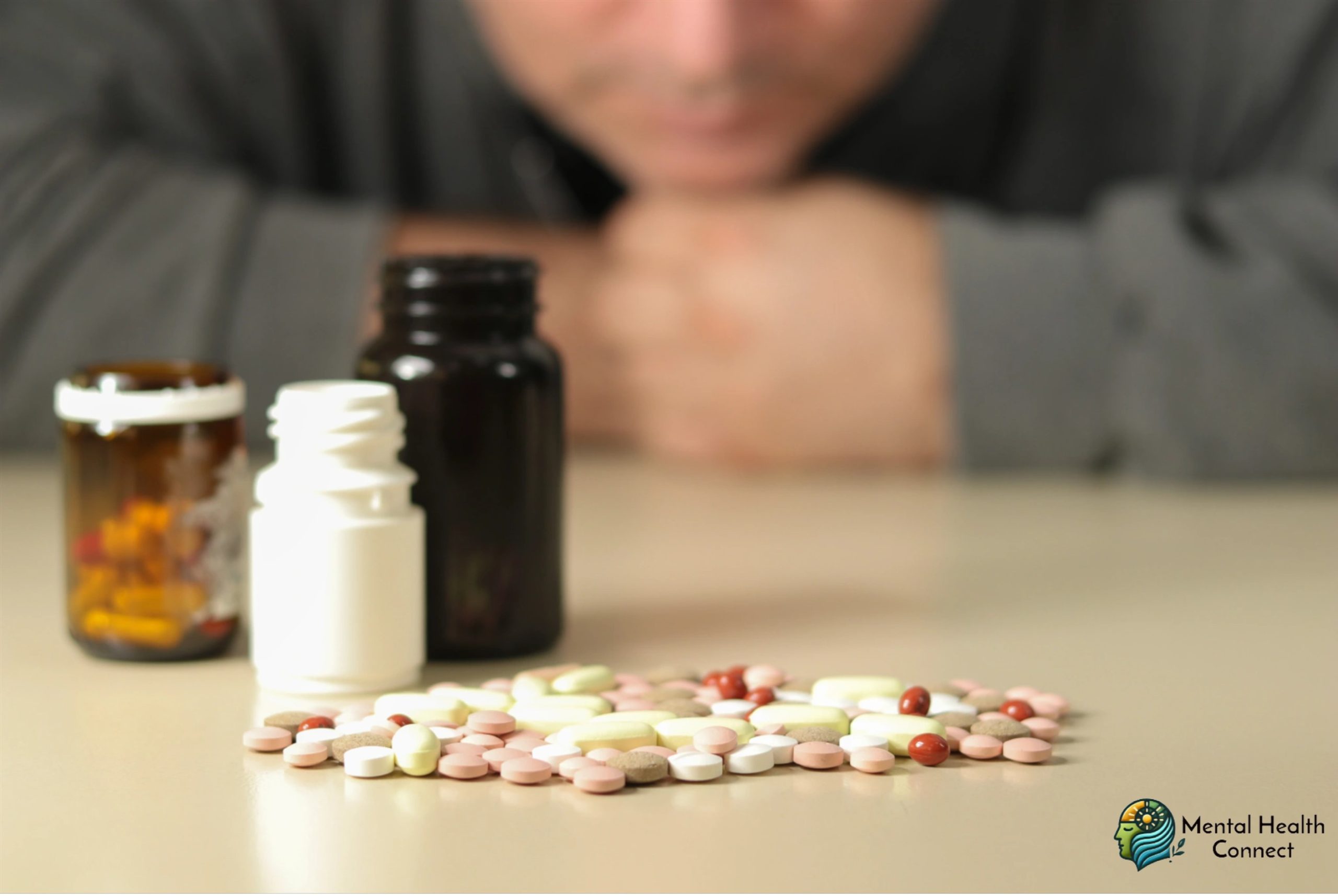When to Consider Starting Antidepressant Medication

Making the decision to start antidepressant medication is rarely simple. For many people, it involves navigating complex emotions, confronting stigma, and weighing potential benefits against concerns. This blog aims to provide clear guidance on when it might be appropriate to consider medication as part of your treatment plan for depression or anxiety.
Understanding the Role of Antidepressants
Antidepressants are medications that work by balancing brain chemicals (neurotransmitters) that affect mood and emotions. While they’re primarily known for treating depression, many antidepressants are also effective for anxiety disorders, certain pain conditions, and other mental health concerns.
It’s important to recognize that antidepressants are neither a “quick fix” nor a sign of personal weakness. They’re medical treatments for conditions that have biological, psychological, and social components.
Signs That Medication Might Be Appropriate
1. Severity of Symptoms
One of the primary factors in considering antidepressant medication is symptom severity. Signs that your depression or anxiety may be severe enough to warrant medication include:
· Feeling sadness, emptiness, or hopelessness most days
· Inability to experience pleasure or interest in daily tasks or previous enjoyable tasks
· Decrease in appetite
· Feeling sleepy all the day
· Noticeable changes in energy levels or movement (fatigue or agitation)
· Difficulty in making decisions and unable to concentrate on tasks
· Ideas or thoughts of suicide or thinking about death
If you’re experiencing several of these symptoms for two weeks or more, medication may be worth discussing with a healthcare provider.
2. Functional Impairment
When depression or anxiety begins to significantly interfere with your daily functioning, medication might be beneficial. Consider these questions:
· Are you struggling to maintain your work or school performance?
· Have your relationships been negatively impacted?
· Are you finding it difficult to take care of basic responsibilities?
· Have you withdrawn from social activities or obligations?
· Are you unable to engage in self-care practices?
If your mental health is preventing you from living your life effectively, medication may help reduce symptoms enough to improve functioning.
3. Previous History and Response
Your personal history with depression or anxiety can inform treatment decisions:
· Have you experienced multiple episodes of depression?
· Did previous episodes respond well to medication?
· Is there a family history of depression that responded to medication?
· Have your symptoms been worsening over time?
Research suggests that with each episode of depression, the likelihood of future recurrence increases. Medication may be particularly beneficial if you have a history of recurrent depression.
4. Limited Response to Non-Medication Approaches
Many people begin with non-medication approaches to treating depression and anxiety, such as:
· Psychotherapy (particularly cognitive-behavioral therapy)
· Lifestyle changes (exercise, improved sleep habits, nutrition)
· Social support enhancement
· Stress reduction techniques
While these approaches work well for many people, if you’ve given them a fair trial (typically several weeks to months) without significant improvement, medication may be an appropriate next step.
5. Specific Symptom Patterns
Certain symptom patterns may be particularly responsive to medication:
· Biological symptoms (sleep disturbances, appetite changes, energy loss)
· Severe anxiety with panic attacks
· Obsessive-compulsive symptoms
· Seasonal affective disorder
· Depression with psychotic features
If your symptom pattern includes these features, medication might be especially beneficial as part of your treatment plan.
Special Considerations
Suicidal Thoughts
If you’re experiencing thoughts of suicide, this represents an emergency situation where immediate assessment is needed. Antidepressants may be part of the treatment plan, but safety is the first priority. Contact emergency services or a crisis hotline immediately.
Pregnancy and Breastfeeding
Depression during pregnancy and postpartum requires careful consideration of risks and benefits. Some antidepressants can be safely used during pregnancy and breastfeeding when the benefits outweigh the risks. This decision should be made in consultation with both a mental health provider and an obstetrician.
Age Considerations
Both younger and older populations require special consideration when it comes to antidepressant use:
Adolescents: Some antidepressants carry a black box warning about increased suicidal thinking in young people. This doesn’t mean they shouldn’t be prescribed, but careful monitoring is essential.
Older Adults: Older individuals may be more sensitive to side effects and may require lower doses initially. They may also be taking other medications that could interact with antidepressants.
The Decision-Making Process
Deciding to start antidepressant medication ideally involves:
1. Professional Assessment
A thorough evaluation by a qualified healthcare provider is essential. This might be:
· A primary care physician
· A psychiatrist
· A psychiatric nurse practitioner
The assessment should include a complete history, review of symptoms, and discussion of treatment options.
2. Informed Consent
Before starting medication, you should understand:
· Potential benefits
· Possible side effects
· How long it might take to work
· The importance of taking it as prescribed
· How long you might need to continue treatment
3. Collaborative Decision-Making
The decision to start medication should be made collaboratively between you and your healthcare provider. Your preferences, concerns, and values should be central to this discussion.
Overcoming Common Concerns
Many people hesitate to consider antidepressants due to concerns such as:
“I should be able to handle this on my own.” Depression and anxiety are medical conditions, not character flaws. Just as you wouldn’t expect to recover from diabetes or hypertension through willpower alone, mental health conditions often require treatment.
“I’ll become dependent on medication.” Unlike some medications, antidepressants are not addictive. They don’t create cravings or require increasing doses to achieve the same effect.
“Taking medication means I’ll be on it forever.” Many people take antidepressants for a limited time period. While some may benefit from longer-term treatment, others use medication to help recover from a single episode.
“Medication will change my personality.” Effective antidepressant treatment typically helps you feel more like yourself, not less. The goal is to reduce symptoms that are interfering with your authentic self.
Starting antidepressant medication is a significant decision that should be made thoughtfully and in partnership with healthcare providers. If you’re experiencing severe symptoms, functional impairment, or haven’t responded to other treatments, medication may be an appropriate option to consider.
Remember that medication is rarely the complete solution. Most effective treatment plans combine medication (when appropriate) with therapy, lifestyle changes, and social support. The goal is not just symptom reduction but improved quality of life and functioning.
If you’re struggling with depression or anxiety, reaching out for professional help is a sign of strength, not weakness. With proper treatment, recovery is possible.
-
 How to Support Someone with OCDApril 17, 2025
How to Support Someone with OCDApril 17, 2025 -


Leave a Reply